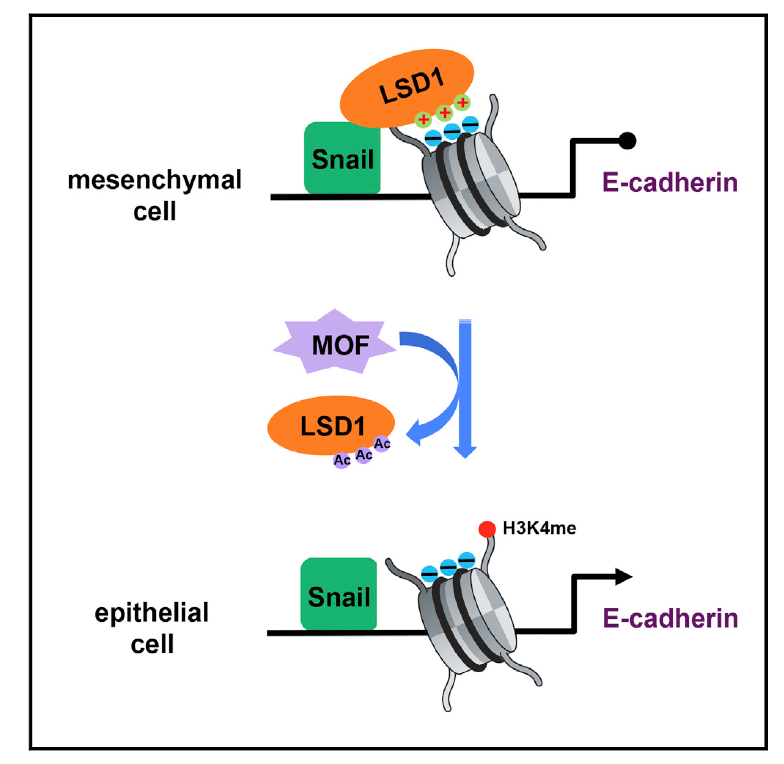 My caption 😄
My caption 😄
MOF Acetylates the Histone Demethylase LSD1 to Suppress Epithelial-to-Mesenchymal Transition
Abstract
The histone demethylase LSD1 facilitates epithelialto-mesenchymal transition (EMT) and tumor progression by repressing epithelial marker expression. However, little is known about how its function may be modulated. Here, we report that LSD1 is acetylated in epithelial but not mesenchymal cells. Acetylation of LSD1 reduces its association with nucleosomes, thus increasing histone H3K4 methylation at its target genes and activating transcription. The MOF acetyltransferase interacts with LSD1 and is responsible for its acetylation. MOF is preferentially expressed in epithelial cells and is downregulated by EMT-inducing signals. Expression of exogenous MOF impedes LSD1 binding to epithelial gene promoters and histone demethylation, thereby suppressing EMT and tumor invasion. Conversely, MOFdepletion enhances EMT and tumor metastasis. In human cancer, high MOF expression correlates with epithelial markers and a favorable prognosis. These findings provide insight into the regulation of LSD1 and EMT and identify MOF as a critical suppressor of EMT and tumor progression.
More detail can easily be written here using Markdown and $\rm \LaTeX$ math code.